Episode 12: Andy McIlwain
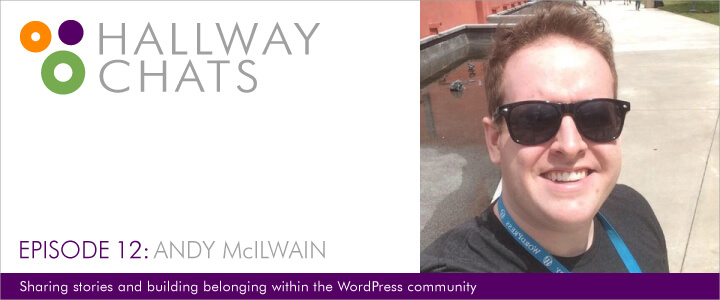
Podcast: Play in new window | Download
Subscribe: RSS
Introducing Andy McIlwain
Andy McIlwain tackles content and community projects at GoDaddy. He’s a fan of the arts, impromptu road trips, user-friendly technology, and helping Canadian small businesses work with the web.
Show Notes
Website | https://andymci.com
Twitter | @andymci
Episode Transcript
Liam: This is Hallway Chats, where we talk with some of the unique people in and around WordPress.
Tara: Together, we meet and chat with folks you may not know about in our community.
Liam: With our guests, we’ll explore stories of living – and of making a living with WordPress.
Tara: And now, the conversation begins. This is episode 12.
Tara: Welcome to Hallway Chats. I’m Tara Claeys.
Liam: I’m Liam Dempsey. Today we have Andy McIlwain joining us. Andy tackles content and community projects at GoDaddy. He is a fan of the arts, impromptu road trips, user-friendly technology, and helping Canadian small businesses work with the web.
Andy: Howdy!
Tara: Hi Andy! How are you?
Andy: I’m doing all right. How are you guys doing?
Tara: Good. We’re so glad you’re with us.
Andy: I’m happy to be here.
Tara: We’re glad to have our first Canadian on the show. Tell us about yourself, Andy. Tell us a little bit more than what Liam just introduced.
Andy: Sure thing. My name is Andy McIlwain. I’m out of Canada. I was born and raised in Ontario. I’ve been working with WordPress for about ten years now. I’m a longtime advocate. My full-time gig is at GoDaddy. I look after content and lead projects over there. I do a lot of work with our GoDaddy Pro program. So I’m helping web designers, developers who are managing their clients who are using GoDaddy products. At the end of the day, pretty much everything I do goes back to helping small businesses. It just quite a passion for me.
Liam: That is awesome! We love small businesses. Tara and I both run our own. That’s great to hear that you’re so supportive of that particular community. So you say you’ve been a longtime user and big advocate of WordPress. Tell us a little bit about how you got into WordPress. Where did it all start for you?
Andy: For me, it was the early days. I was building fan sites. I was a kid building fan sites of video games and hobby stuff. That was a big interest for me. It was never really the coding. It was just about sites built out, getting the content pulled together, and putting something online. It was great because it had a very low barrier to entry compared to some other stuff. You didn’t need a lot of money to build a website. You just needed to know what steps to take. There were a lot of free services on line (Tripod GeoCities all those). I started getting into content management systems as a hobby. I was probably fifteen playing with different tools like Grey Matter and Textpattern. Eventually, when I was in college, I had an instructor who weaned me off Textpattern and said use WordPress. Why are you using Textpattern? Nobody uses Textpattern anymore. I got into WordPress around 2007, and I’ve been swearing by it ever since. Everywhere I go, and everywhere I work, I start spreading the good word of WordPress.
Liam: I am going to pause for just a second and Hooray your shoutout for Textpattern. That’s where I got into making my own database driven websites and not relying on a developer. I’m very much a designer. So yeah, woo for good old fashioned Textpattern!
Andy: It’s a great system. It’s still around, right? If anyone that’s listening is curious about it, go Google Textpattern and check it out. It’s worth seeing the way they approach things. It’s a little bit different from WordPress.
Liam: So you said that you had an instructor who won you over to the dark side of WordPress (I say that jokingly). What was the convincing argument? What did your professor say? Is that what convinced you or was it something else that you saw and found within WordPress that was the convincing argument (if I can phrase it that way)?
Andy: If I can recall correctly, I think it was when he introduced me to how themes were built in WordPress. The overall template hierarchy and how all of that came together. That’s what won me over because I was interested in building custom sites and doing custom designs. My comfort level was basically HTML, CSS and a smattering of JavaScript or JQuery. There was just that little tiny bit that everybody knew back then. Getting into WordPress…what really won me over and kept me there was starting to see the ecosystem that existed around WordPress. You start looking at the plugin ecosystem and look at the functionality. You can build it very quickly. You’re not going to scaffold something together with custom code and the theme libraries. If you wanted to a build out a prototype site very quickly, you could do that. I didn’t have to spend as much time on it as if I was using Textpattern or some of these other Content Management systems. It was very quick. That was a big deal for me back then.
Tara: What were you studying specifically?
Andy: Advertising. I was studying advertising, and I wanted to get into the ad industry. But I graduated into the recession. So WordPress really did save my life and my career in a sense because it was my knowledge of using WordPress and building websites that got me into working in tech. If I hadn’t done that as a hobby…let’s put it this way…a lot of my peers that graduated around the same time as me…pretty much nobody’s working in the ad industry. Nobody was hiring.
Tara: I also started in advertising. I can relate to that.
Andy: 2007 or 2008 right around there; 2008 especially was a bad time.
Tara: They’re related though. You are communicating. Advertising and website building is not that far unrelated.
Andy: It’s funny now. When you look at Content Marketing and where things are going in terms of our marketing strategy so much of it is this hybrid of the tech and the traditional advertising. In traditional advertising, you’re talking marketing communications, you’re talking about telling stories, and now you are hitting that point where it’s merging together; where it is storytelling with technology. How do we take VR or AR or the mobile first experiences and tell a story with that to build a brand and help move a product or sell services?
Liam: Yes storytelling has always been an important part of marketing and advertising. The phrase storytelling has grown increasing prominent in recent years. Maybe we’ll ask you (using that phrase) to tell us the story or perhaps more accurately the definition success. What doe success mean for you? It can be personal success or professional success; however you want to define it.
Andy: I always go with this old line. I’ve gone with it since high school. Do what you love and get paid for it. Success means looking forward to going to work every day, looking forward to getting up every morning, really entwining what you do professionally with your interests personally so that it complements each other. With what I’m doing now at GoDaddy, I feel like I’ve finally hit that point. With all the other jobs and all the other things I’ve done over the years, I’m kind of there. It finally feels like it really hit on.
Liam: Yeah. That story of just getting to where you want to be and getting to the point where you are in your success and doing exactly what you want to do and getting paid for it is really interesting. I was having a conversation last week with a friend around how we reach success (with books and success planning…I’m really struggling with words today). Let’s say that A to B, or the fastest point to get there But it’s very rare in real life that A to B is the path that we could take, right? We need to build skills, pay bills and take care of this concern or that concern. It is often A, B, C, D, E, F, G, H, I and then eventually we get to where we want to be.
Andy: Yeah.
Liam: That’s really interesting. So now that you’re doing what you love and getting paid for it, and in a sense, you’ve achieved success and now you are working to maintain that, what is the single most important thing you do every day to build on or maintain that success?
Andy: Momentum. Building on the momentum and at a tactical level, just rocking the calendar. Making sure that everything you set out to do that there’s time set aside for it. If it doesn’t exist on the calendar, it doesn’t happen. It may sound a little bit OCD but really looking at day-to-day, week to week, and a whole year at a glance of how am I using my time? What am I doing first thing in the morning? What am I doing before I go to bed? I’m blocking all of that out just to make sure that I just keep chugging along. I feel that I hit a point of success but at the same time, the milestones you want to hit keep changing. Like I hit this point, now what am I going to do next? What is the next big thing I want work on that continues that train of success? So the calendar is the biggest thing.
Tara: So I am a self-professed tool junkie (especially productivity tools). Do you have any? It sounds like you’re really on top of managing your schedule and blocking it off. Are there any tools that you use for that besides a regular calendar?
Andy: I am a huge fan of Todoist.
Tara: I use that too.
Andy: I love their chrome extension. I use Todoist across every device. It is my favorite thing by far. In terms of other productivity tools, I bounce between Outlook and Google calendar on a regular basis. For work, it’s a Microsoft ecosystem. I’m in Outlook every day. Personally, I use Google and Gmail for a lot of my stuff, and I have for years. The one thing I feel that doesn’t really exist yet is the perfect merge between the two. If I have multiple calendars across multiple places, I’m sharing events across multiple email addresses. They are all me. I feel like I shouldn’t have to do that. I really haven’t found a better solution. With project management, I use Trello if I’m working with multiple people. When I’m working on the project, Trello is my go to.
Liam: So it’s really great that you mentioned Trello. I have struggled with personal to do list tools (not that I haven’t found good ones. I have some good ones). It’s more that I don’t want to maintain different systems. We use Trello at my company. I stopped using a personal to do list because I didn’t want to use two or three different systems. Can you talk a little bit how you engaged Todoist versus Trello and how to work tasks?
Andy: Sure. So for me, Todoist is a different philosophy. Trello is all about there are different tasks, and we need to work the tasks like a kanban board, right? You’re working through a process with different tasks. There are different stages. It’s really good for collaboration. If it’s just me working on my own thing and it is fairly simple where I have to get this done, that’s what ends up in Todoist. For example, I have a reading list in my Todoist account. I’ll use this little feature in the chrome extension add website as a task. So if there is not a bunch of articles that I’m curating from the newsletters that I receive every morning, I’m just going to open up the article I want to read…after I read it I add website as a task. That saves me a whole lot of time. I set that block of time to do reading. I just go through my Todoist and check off those tasks. When I see that point system go up and see the karma go up in Todoist..it’s really for that. It’s for knocking things out that are standalone items. Trello comes in if I’m taking on a bigger project where I need to be tracking multiple tasks.
Tara: So do you set aside time to read those because I use Pocket. I also use that Todoist feature as well. But what happens is that I have probably thirty articles on my Todoist (to read list) and I never go do it. Do you block off time to do that?
Andy: I do, and I currently have 73 items tagged in the read this in Todoist.
Tara: (laughing) That makes me feel better!
Andy: My biggest list is books to read. I have 138 items in there.
Tara: That makes me feel much better.
Andy: I try to block time. It’s one of the hardest things I find when it comes to reading (especially when you trying to do the reading for work) or use professional learning and development. You know it’s an important task but when you have these emails in your inbox and fires to put out, quickly that reading time gets set aside and you try to fit it in here and there. I think that the best reading time I have is when I’m stuck on an airplane. I’ll go through Todoist, block up a bunch of stuff to go into Pocket for off-line reading and I’ll get on the plane, and I’ll spend that 2, 3 or 4 hours just plowing through pocket articles. Otherwise, it’s hard to find the time to read. You’ll set it aside, but things come up.
Tara: I agree.
Liam: I’m going to ask one more question on this. It’s just because I’m really interested. So there’s a big project that you’re working on. You’re in Trello where you’ve got team members, and you have a task (you said you work around content and the like). Let’s say you have to pull together a series of articles. Then you are going to write a recap, and then you need to share it via social media. So in your mind, are you breaking those down? Are any of those specific task items make it into Todoist or does it all stay in Trello? If on the fourth day of not doing it, or whatever the case may be, how do you how you use your tools to encourage yourself to tackle?
Andy: So Trello is for working on a project. So what you’re saying is that you’re going through multiple phases and curation, and amplification and maybe a sharing or outreach aspect to it. All of that’s going to live in Trello. One of the things that I have tried in the past and it never really works is if you have the same tasks going into separate systems because at some point it’s going to fall a part. You have something moving along on one side. It’s not catching up on the other side. You have to reconcile that, and that’s another task into itself; reconciling all the different task statuses. That lives in Trello. Where it hits me as an alert is that I’ll set up a block of time in my calendar or appointment reminder to notify me that I need to get this thing done. It may not be that thing needs to go out at that time, but I need to work on it at that time. So in Outlook for example, or in Google calendar just in the event description or appointment description, I would link to the Trello card. This things needs to get done, or I need work on this to get it done.
Liam: Thank you. That is very helpful. So we talked about what the single most important thing is to achieve success. Within your day, what’s your favorite thing to do?
Andy: Oh my favorite thing to do? I really enjoy thinking of things in terms of systems and processes. So if you start looking at…let’s say we want to plan out a bunch of content over a quarter or over a couple of quarters, thinking about how those different pieces could layer together or be repurposed in different ways. How is that going to work? What are the different steps involved? Who’s going to work on what? I find I really get into that flow state. If I’m looking at things like that, where I’m looking at the big picture and then zooming right in on a very granular level. I love doing that sort of work. The challenge is setting aside the time to actually get into that. So it’s not really this 30-minute thing here and there. It’s you have a day. That’s my favorite. You have a day to work on something. You focus on that one thing the entire day.
Tara: Do you work from home?
Andy: Yes I do. So I’m one of a handful of Canadians working for GoDaddy. I work with the GoDaddy corporate team. My home base is actually Sunnyvale California. I work remotely from here in Toronto.
Tara: About how many hours would you say that you work a day when you have a day like that?
Andy: Oh God! It varies. Sometimes I’ll throw in a 12-hour day. Some days it will be a standard, like an eight or nine hour day. It really depends on what needs to get done with work and whatever else is going on. It’s one of the things that I really like about working remotely. There’s a lot of flexibility. As long as the work is getting done, everybody’s happy.
Liam: Yeah. That’s a beautiful thing about remote work. With the right environment and the right level of trust and the right self-discipline, it’s all about outputs, product, and quality. In theory, if we could do it all in a minute and have the rest of the day free, that would be awesome.
Andy: That would be wonderful.
Liam: It doesn’t happen. But that level of trust and that level of flexibility is fantastic. So if we’re going to chat about favorite things, I feel like maybe we should talk a little bit about least favorite things or things that you avoid like the plague.
Andy: Wow, things that I avoid like the plague. That’s pretty much any sort of bureaucratic paperwork that needs to get dealt with, whether that’s dealing with expenses, dealing with HR, dealing with legal, or dealing with anything like that. If I have to open up our internal knowledge base and start reading through documentation on how to do something that’s fairly simple (or should be fairly simple), it’s probably the least favorite part of my day.
Liam: I struggle with that as well. I understand that. It can be tough. It’s really difficult to put those kind of product tasks that have to get done (or are important on some level) to put them in a way or in a context that makes people of at least it not look forward to them at least not try to drive around them at all costs. So I appreciate you’re transparency. So let me let me talk back just a little bit. You told us about how you got into WordPress. You told us what you’re doing now and how that really helped you achieve a level of success of loving what you do and getting paid for it. A big part of that is with your role with GoDaddy now. Talk us through a little bit if you would what you did before you got to the level of success you’re in now. What were the steps between say getting out of college with that degree in advertising, realizing that WordPress is going to come in handy. What happened between then and now?
Andy: For sure. So for me coming out of college it was an interesting thing because I didn’t know what I was going to do. I really enjoyed what I was doing in college. I enjoyed the program. But then that time came when I’m about to graduate and I have absolutely no plan. I don’t know where I’m going to work or what I’m going to be doing. It’s just, hey! I’m done. I did well, now what? So I ended up getting a job as an SEO specialist in a small digital marketing company back in Kingston Ontario. It’s where I went to school. That was my first taste of actually working in a corporate office environment. That was just a huge learning experience. I never dealt with working with a bunch of professionals before. I don’t know what I’m doing. I don’t know what I’m supposed to be doing. I think I know what my job is but I’m not hundred percent sure. So from there it was a lot of fast moves to different companies. I was there for about a year and jumped over to another tech company. I moved from that tech company to a start up. I moved from that start up to another agency. In each case, it was just the building of a little bit more experience – a little bit more experience on top of what I already knew. It was going from learning about SEO at the first job, to the next job learning about corporate IT and that ecosystem, dealing with client and sales and marketing. Then it was going to a start environment and learning about agile and working with a team of engineers and the friction that sometimes exists between the engineering team and the marketing team…and so on. I just built, built, and built. It was those connections that I made along the way and keeping those connections as I moved on that would lead to the new opportunities. So much of what I was able to get done just came through staying in touch with people, annoying people, and being part of the local tech and WordPress community.
Liam: So that’s an interesting journey along the way and getting to where you are now. As you look back on that journey and maybe even as that journey continued into your current role, what’s been your biggest challenge to date and how have you either dealt with it or how are you dealing with it? How are you addressing it?
Andy: My biggest challenge is that I say yes to absolutely everything and I really shouldn’t. When people come to me with a problem or an idea of something to do, I immediately jump to thinking about how can we do this and not whether or not it should be done. I’m like how do we do this? One of the issues is that sometimes when people see that you’re able to get something done and you’re able to get something done quickly, you become the “go to” because they know you can do it. So what I’m trying to solve for now is how do set the boundaries after expectations have kind of already been set that you’re able to do something. Now you’re trying to put the brakes on and say actually, you know the thing that we were doing over the last several months you can’t do that anymore. They are like why can’t we do it? It’s not that we can’t do it, it’s that we shouldn’t do it. Why shouldn’t we do it? It’s just I need to do other things. That’s really our conversation to have. It’s kind of like when I was doing client work; a client would come to me and say hey! Can we do this? I’d say yes, here’s how we do it. Great! Let’s do it. Then I am immediately kicking myself because I’m obviously saying yeah we can do it. How do we do it? I didn’t think we would actually do it. I was trying to think of a solution on the spot because I wanted to do beat this thing and win. But that doesn’t work in the long-term.
Tara: I can relate to that. Probably most of us can. It sounds to me like you are a very organized person who likes to get things done and you’re very committed to work. You work a lot. Talk a little bit about how you manage that (in terms of self-care). Do you have other things you do or if work is all that you do? How do you manage your lifestyle and I’m not going use that phrase that we hear all the time that has the word balance in it. How do you hold all of that together?
Andy: Lately, it’s just been getting out and hitting the road with road trips, getting out of the city and just physically removing myself from the space that means work. For me, it’s my home office. When I’m in here, I can’t help it; I’m in work mode even if I shouldn’t be working. When I have a screen open, something is going to be work-related on there. It’s a habit. So it’s getting out of the city. One of the beautiful things about living here in Ontario is that we have lots of country a very short drive away. So getting out and going to the lake, exploring some of the smaller towns and just getting away. It really helps. A change of pace is nice.
Tara: Do you unplug that whole time or do you bring your phone?
Andy: I do bring my phone. I am trying to force myself to turn it on airplane mode. I was on vacation over the last few weeks, and it was my first real vacation in a long time. I realized just how helpful airplane mode could be. I just turn it on, let it go and don’t worry about it. And have it as the default and turn it off. If you absolutely need to check email or you absolutely need to do something. But after a day or so, I just wasn’t thinking about it.
Liam: Yes, it’s a presence of mind. I turned off the little notifications on the iPhone, so I don’t see those little red circles anymore. Just not having those red circles staring at me like the red eye of sorrow every time. You will open me and see if anything you said was entertaining to anyone else. Yeah, that’s great advice, use airplane mode. I’m absolutely going to try that. Since we’re talking about advice, let me turn you to our next question which is what is the single most valuable piece of advice that you received and implemented in your life? That advice can be personal, professional or can be both. What is the single most valuable piece of advice that you’ve received and implemented?
Andy: There are two pieces. The first one is getting small wins. When I first moved to Toronto my first job here, being in the “big city” was you need to get some small wins under your belt. In order to make any progress, you need to be able to show that you can do what you say you can do. So breaking down the ambitious projects into smaller things and building on top of that. Again, that momentum. The second thing was more recent. That is learning how to delegate. It’s something I’m still trying to wrap my head around because I feel so inclined to just do something myself. If I know how to do it, I’m just going to do it. I feel like it’s the fastest and best way to do something. That doesn’t scale. So learning how to delegate, learning how to get other people to help and not take on all the responsibility on your own has been very helpful in tackling everyday tasks. Even stuff on a personal level, it there are things you can delegate to a system. I was using TripIt to plan our itinerary on vacation. It’s a huge help.
Liam: Yeah I love that. The small wins are very important. It sits very nicely with my own system of trying to convince people to not only get small wins but document them because you will forget about them. When you’re looking for some win, I never do anything that gets done right. Well, actually if you document them even in a Trello board, Word document or whatever. Then the delegate piece I think is even more important because it’s around trust. It’s having people and systems around you that you trust and learning to trust those people. It’s the trust that you built up and surrounded yourself with that’s really important.
Tara: And tools, delegating to tools.
Andy: Absolutely! TripIt. I just briefly mentioned it, but it’s something that I learned about through work, but now I use it for personal travel and everything as well. You just forward your emails on and it handles all the outlining of the itinerary. It’s just finding systems like that or looking into something like Zapier (if this then that) streamlining things you might do manually is such a huge help.
Liam: I like that a lot. Make everything work for you. A little bit of research and a little bit of trust goes a long way. Andy? Thank you so very much for joining us today. It’s been a real pleasure having you on the show, getting to know you, and learning a little bit about your story. Thanks much for joining us.
Andy: Thanks for having me.
Tara: Thanks, Andy. It’s great talking to you.
Andy: Thank you.
Liam: We’ll see you soon!
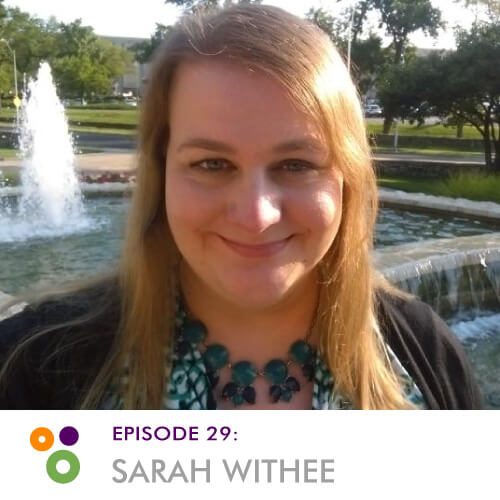
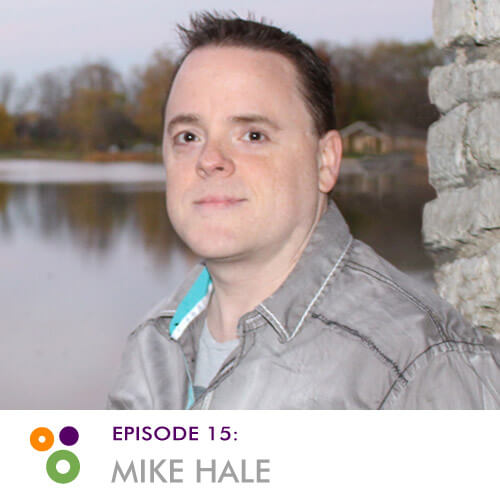
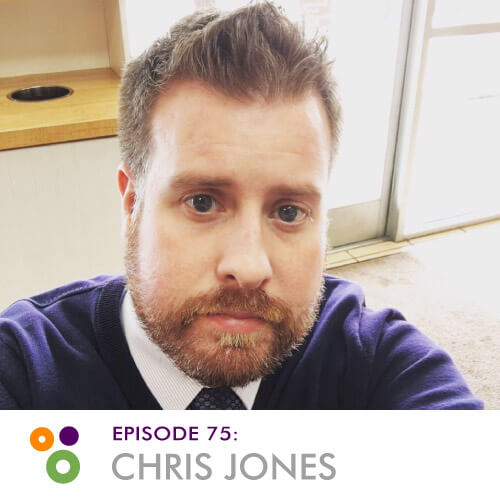
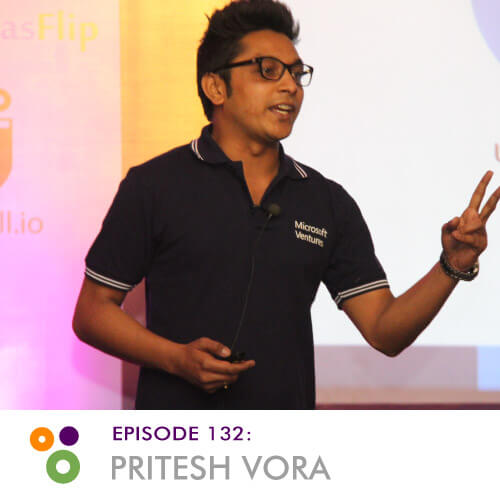
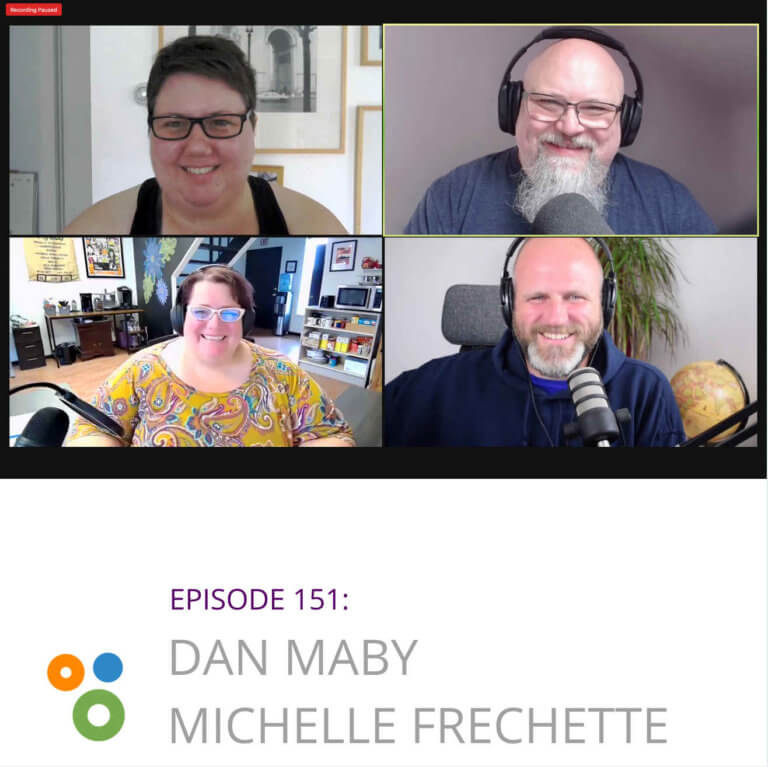
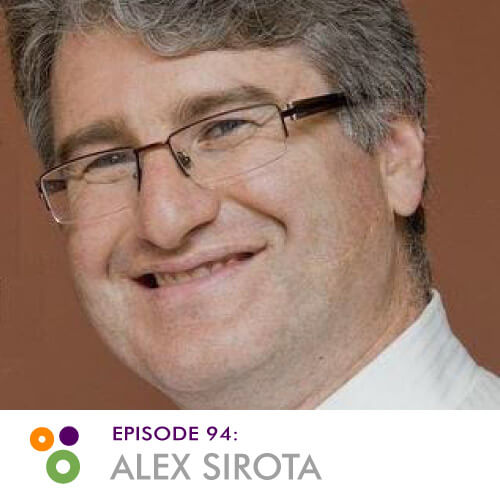
One Comment